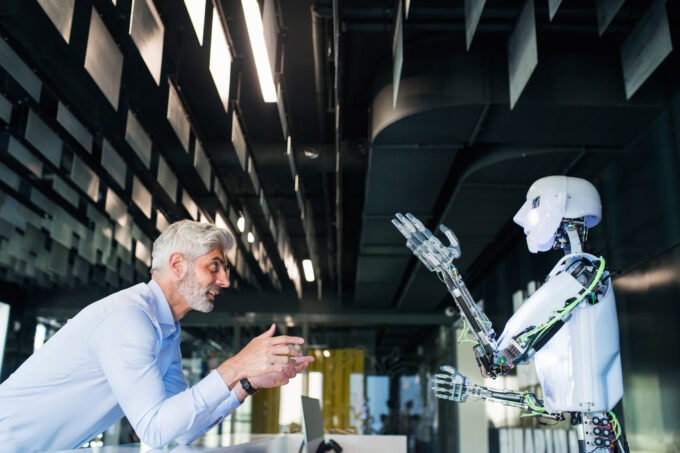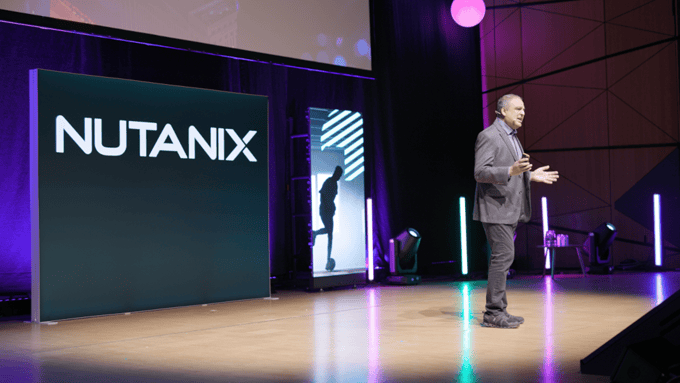Secure into the future with ISO 27001 and ISO 20000
At the "15th Information Security Symposium in Vienna", everything revolved around ISO 27001 and ISO 20000. The organizers were the certification organizations CIS and Quality Austria, which this year put the Symposium under the motto: "Artificial intelligence between man and machine - securely into the future with ISO 27001 and ISO 20000".

Those among the more than 200 professional participants on the topic of "Securely into the future with ISO 27001 and ISO 20000" who expected an entertaining futuristic keynote, were brought down to earth on emerging facts! Roland Benedikter linked interdisciplinary views on technology, sociology and global developments and clearly warned: "AI promotes authoritarian governance due to its inherent logic, because it enables very fast and direct paths to insights and decisions"
AI in authoritarian regimes
"While the EU plans to invest around €9.5 billion in AI research projects in the coming years, China's official AI investment over the same period is €150 billion, with experts suggesting a much higher sum as the true value," Benedikter points out.
He also sees a trend from current trade wars via embargoes and sanctions between Asia, America and Europe to future technology wars as a new means of geopolitical positioning - AI could reorder political ties between world powers.
man-machine fusion
The researcher admitted that anti-democracy scenarios may sound far-fetched, but cited a number of current and real examples: for example, the surveillance cameras in China's schools, which are planned as a pilot project in order to be able to identify potential critics of the regime at an early stage. The face, gestures and body movements of the students are evaluated by intelligent algorithms, with corresponding consequences for "conspicuous persons".
The development of humanoid robots, brain-machine interfaces and intelligent implants is taking place today under the aspect of providing assistance to people with disabilities or incurable diseases. However, Roland Benedikter stressed that little attention is paid to the consequences for the resulting transformation of the human condition: "The global body industry is a gigantic market. By connecting or even merging with AI, humans should be able to grow beyond themselves."
Hacking of thoughts and body functions
The more humans and technology merge, the more explosive security issues become. "In the event of hacking or system errors, it is not only a machine that may be affected in the future, but also a human being, his bodily functions or even his thoughts," emphasized CIS Managing Director Erich Scheiber. Overall, the lecture program spanned the arc to IT-affine management systems according to ISO 27001 for information security and ISO 20000 for IT service management. "Controllable management systems make it possible to map the volatile factors of people and technology in an integrated manner in a security system - risks can thus be continuously evaluated and minimized," explained Erich Scheiber.
Quality Austria CEO Konrad Scheiber affirmed: "Our value-adding processes are also becoming increasingly digital and networked. IT security will become even more important in the future.
Robot persons with human rights
As a meta-trend, experts estimate that in about 80 years there will be about as many "robot persons" as humans. Benedikter pointed to already unresolved legal issues such as "human rights" for intelligent e-persons. After all, the humanoid AI robot Sophia has already been granted citizenship in Saudi Arabia.
"Developers themselves are shocked at how fast the development is going," Benedikter reported, concluding with an extremely serious statement: "Oxford professor Nick Bostrom and other thought leaders see an inherent danger that can only be averted through interdisciplinary global cooperation: artificial intelligences could evolve into super-intelligences and, in the final analysis, they could turn against humans. For with increasingly human-like intelligence, a kind of learning and thus also memory and anticipation consciousness of the machines could emerge. They could understand who alone can pull their plug - humans." All of these challenges can only be addressed in an inter- and transdisciplinary way, he said. To this end, governments, civil society and science would have to cooperate much more intensively than before.
IT-savvy ISO-Management standards at a glance: https://at.cis-cert.com/Systemzertifizierung/Ueberblick-ISO-27001-and-ISO-20000.aspx









